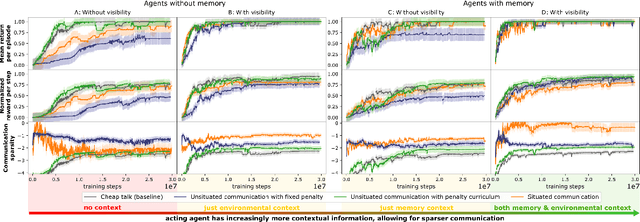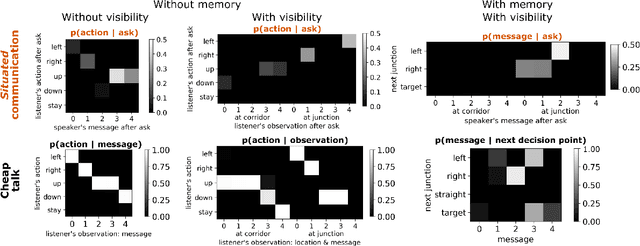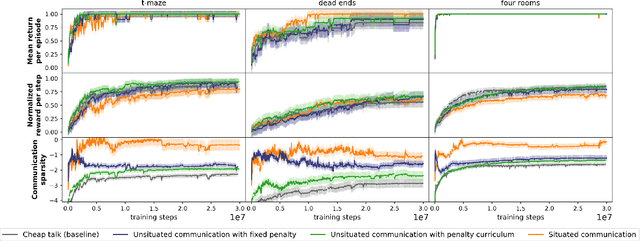Patrick M Pilarski
Over-communicate no more: Situated RL agents learn concise communication protocols
Nov 02, 2022



Abstract:While it is known that communication facilitates cooperation in multi-agent settings, it is unclear how to design artificial agents that can learn to effectively and efficiently communicate with each other. Much research on communication emergence uses reinforcement learning (RL) and explores unsituated communication in one-step referential tasks -- the tasks are not temporally interactive and lack time pressures typically present in natural communication. In these settings, agents may successfully learn to communicate, but they do not learn to exchange information concisely -- they tend towards over-communication and an inefficient encoding. Here, we explore situated communication in a multi-step task, where the acting agent has to forgo an environmental action to communicate. Thus, we impose an opportunity cost on communication and mimic the real-world pressure of passing time. We compare communication emergence under this pressure against learning to communicate with a cost on articulation effort, implemented as a per-message penalty (fixed and progressively increasing). We find that while all tested pressures can disincentivise over-communication, situated communication does it most effectively and, unlike the cost on effort, does not negatively impact emergence. Implementing an opportunity cost on communication in a temporally extended environment is a step towards embodiment, and might be a pre-condition for incentivising efficient, human-like communication.
 Add to Chrome
Add to Chrome Add to Firefox
Add to Firefox Add to Edge
Add to Edge